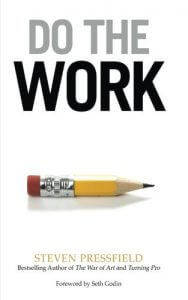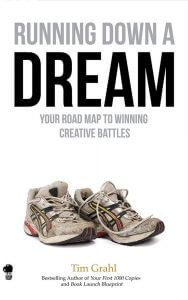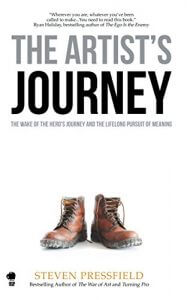We two Story Insiders agree on many things anyway, but especially on the understanding that story is much more than well-told stories and should certainly not be limited to marketing communication.
Story is a universal phenomenon that connects us across all social, demographic, cultural and other boundaries.
The ability to share stories is a gift that provides us humans with irreplaceable services in almost all areas of our lives. In communicating values and organising our society, in passing on information and knowledge, in leading people, in shaping our own lives and our image of the world - how it should be and how we can create it for ourselves. In conversation with our inner self, in conversation with each other, in public conversation - Story is our tool that we never let go of. Even when we sleep, we continue to build our stories, because what are dreams but often confusing and disturbing stories in which we continue to spin our lives and from which, at best, we can explain something to ourselves?
There is no one who does not need Story.
There is no one who can't do Story. Or could ...
Understanding this phenomenon is useful to everyone, even if you may not use it consciously and purposefully in the sense of a tool. Doesn't matter.
But for everyone who writes concepts, texts, creates images, convinces others, gives speeches, presents, leads people, wants to sell (don't we all always want to do that somehow?), a conscious approach to story beyond the buzzword gurgling is fundamentally helpful. Consciously means respectfully and mindfully. We don't want to manipulate, seduce or cover up. Story can do that, too, but it can also catch your eye. Usually sooner than you think. Good!
The story principle is as simple as life itself.
However, applying the story principle is complex. Like life.
Anyone who has ever sat in front of a blank sheet of paper or opened a file because something is now being written knows what often happens: Nothing.
On the contrary: until you sit down in front of a blank sheet of paper or open a file on your PC - nothing happens for a long time.
Actually, something does happen: you rearrange the library, delete old files, sort out emails, sort the DVDs by colour, the CDs by genre and the LPs by form, check urgent news on Spotify, even do a bit of bookkeeping, then you research on the web, because decent preparation is indispensable for the great, perfect result, and then ... - It's crazy how quickly a day like that goes by, isn't it?
Learned people call this struggle procrastination and explain to us exactly why this is so.
A wise man called Steven Pressfield explains this battle to us in detail and tells us how we can win it, this War of Art.
This brings us to the beginning of my summer reading orders. After all, we want to emerge from our holidays refreshed, and since we humans are known to live in bodies but have grown attached to our souls, we also know where successful recovery begins. So let's read a couple of heart-refreshing books, just by Steven Pressfield, whom Story Insider of the early days encountered again and again.
Steven Pressfield is an American author of many books, novels and non-fiction, including the novel for Jeremy Leven's screenplay "The Legend of Bagger Vance", which Robert Redford directed, starring Will Smith, Mat Damon and Charlize Theron among others. Pressfield found success very late in life, struggled for decades to achieve his breakthrough and is intensively involved with the phenomenon of creative work. In the meantime, six books have come together that illuminate the topic from different angles.
This provides the perfect reading package for the holidays. The reading is not heavy. Even the books themselves are light, fit into any bathroom bag, and if you fall asleep while reading and the thing falls on your head, no blood will flow. But there is no danger of falling asleep anyway. You will devour each of these books, even if you have eaten a whole pizza at lunchtime just before the tiramisu and just after the caprese and have already greeted their arrival with the second bottle of Pinot Grigio.
A few introductory notes:
- Steven Pressfield is a professional writer and naturally writes from this perspective and from deep personal, often painful, agonising experience.
- Most of his thoughts apply to every human being who is creatively active, and you will understand them in the same way without complications. This is also what Pressfield meant.
- Creative work is by no means limited to artistic activity or creative work in the narrow sense.
- There are extensive reflections on the order in which one should binge-watch the Star Wars films. In our summer reading package, however, there is no religious rite. I recommend the order in which they appear here; in any case, you should read the first three in the same way, then you'll get the most out of them.
- Read the books twice in a row.
- Enjoy yourself and recommend everything that pleases you.
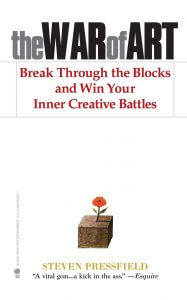
The War of Art
I have already recommended this book several times and am doing it again here for the sake of completeness. It is the basic work. It opened my eyes and my heart. I suddenly understood myself. (Hardly anyone else does ...) In short, The War of Art is about procrastination, why we constantly put off the things that are most important to us until it may be too late, and how we can get a grip on it.
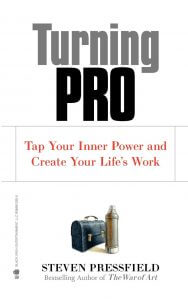
Turning Pro
If you want to go from being an amateur to a professional, you don't necessarily need an additional course in your subject, but above all a new course in the attitude towards your work and yourself. When we become professionals, our lives change. It's as simple as that, and as difficult, because we leave the familiar field of comfort and embark on a journey that may well be called an odyssey.Turning Pro is a wonderful compass ...
Do the Work
This book starts where Turning Pro leaves off and is something like an implementation plan, encouragement call and dose of encouragement for you to do your work. Your work, that is, what you are there for in this world. And you know what that is anyway, after reading the first two books you admit it ...
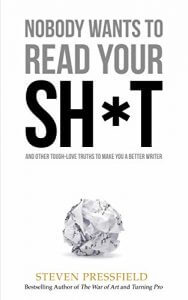
Nobody Wants to Read Your Shit
The title says it all. I have already recommended this book several times and it is also useful for those who go through life far from all attacks of procrastination. I don't know anyone who does, but supposedly there is someone.
Whether you're an industrial lyricist writing texts with your fear sweat so that your clients' yoghurts, insurance policies and T-shirts bring in fat sales, whether you're ripping screenplays, novels or reportages from your heart so that the cash registers ring, whether you're thinking up concepts & strategies, setting up a blog, carrying a political programme into the world, getting your children to learn or getting your employees excited about digitalisation, whether you're making a start-up pitch to investors or a plea in court: No one cares about your shit. Believe me.
And if you don't believe me, at least believe Steven Pressfield: "A real writer (or artist, or entrepreneur) has something to give. He has lived long enough and suffered enough and thought long enough about his experiences that he can turn it into something that is valuable to others, if only for entertainment. A fake author (or artist, or entrepreneur) only wants to draw attention to himself. Maybe the word "fake" is a bit harsh. Let's say "young" or "in development"."
How to deal with it well is in Nobody want's to read your shit with a lot of applicable insight into what matters in good stories.
Running Down a Dream
This book is not by Steven Pressfield, but by Tim Grahl, but Pressfield writes about Running Down a Dream: "Tim Grahl is my secret guru for exactly what Running Down a Dream is about. Tim's book is the toolbox forTheWar of Art ..." Any questions?
The Artist's Journey
If this title makes you think of the Hero's Journey, the concept of the hero's journey by Joseph Campbell, then everything is already said about what this recently published book by Steven Pressfield is about. The Hero's Journey as a starting point and model for the path of artists, creative people, i.e. those who shape their own life story. A book for and about all of us. "You are an artist - whether you understand it or not, whether it suits you or not - and you have an Artist's Journey ...", writes Steven Pressfield.
Oh yes, another question I am often asked:
"Why do you always link to the English editions?" - The truth is, I link to the original if the book is written in English, because it is original. Some books are also available in other languages, if you need them please just click on, or ask for information in your local bookshop. In this case, the books are only available in English, but they are easy to understand, don't worry.
The links to Amazon , by the way, are intended as a service for snooping around and in case you want to feed your Kindle right away. Every bookseller is happy about a purchase and gets every book in the twinkling of an eye - sometimes the hand is turned around two or three times ... The reward for this: there is always a lot to discover during a visit to the bookshop, and I am also happy about relevant tips - not only from the non-fiction and specialist book corner.
And something else important comes to mind about reading. In the last few months, I have switched back to reading exclusively in print, even though I was an evangelist for e-books, especially when it came to specialist books, because marking and excerpting is very easy, even with a small workaround, and you have every book available in an instant and in your pocket all the time, without lugging it around. However, I notice that I read differently - more intensively - when I have a printed book in my hand. And I mark, note and inhale better. Maybe it's a question of age, but let's see: maybe one day I'll be old enough to be an eBook reader ...
Oh yes, one more thing - about writing.
Some time ago I read the sentence: "People who write don't do it to explain the world to others, but to explain the world to themselves. I can completely confirm this from my experience. That's why writing as a thinking tool works even if you don't publish what you've written, and I can especially recommend it as a cultural technique with friendly emphasis. But again, be sure to write by hand: Paper + pencil, fountain pen or gel roller. That's how it works.
A thoroughly interesting alternative seems to be the reMarkable tablet. I was recently delighted with it in gift form and am honestly impressed. Among other things, because I suspect that people smart enough to develop this product have at least a thousand more ideas than I do about what the next updates to the software might do.
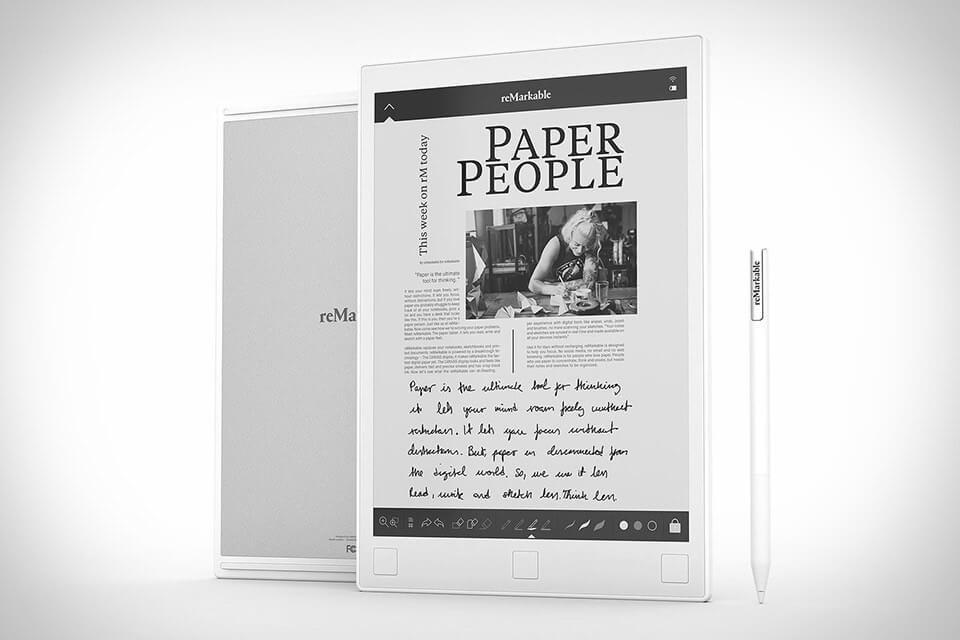
Whatever we read - whatever we write, on and with whatever medium, my grandmother, old Story Dudette, stands beside us in spirit, pencil sharpened and ears pricked, with her bookworm on a leash, whispering to us, "No Story! No Glory!"

